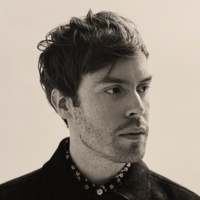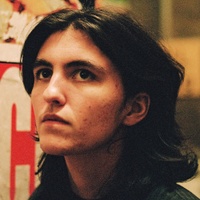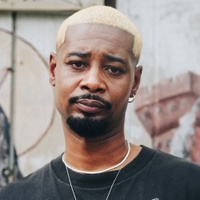As told to Kevin M. Kearney, 2727 words.
Tags: Music, Process, Adversity, Inspiration.
On process as expression
Songwriter and producer Jack Tatum (Wild Nothing) discusses the power in creating imaginary deadlines, using recordings as time capsules, and learning how to follow a whim.When we spoke a few years ago, you said that one of the biggest benefits in moving from L.A. back to Virginia was having more physical space at home to make music. How has that affected your creative process since then?
I had a separate studio space in L.A., which was kind of cool and different because I’ve always worked out of my house. There’s always been obstacles. When I was out there, the obstacle was having to share the space and schedule my time around another person. There was something that was nice about having a separate space as a destination, one that made me say, “I’m going here to work on music.” It focused me in a way that was new and different.
Since we got our house here in Richmond and I’ve been able to get a home studio set up again and it’s been great. So, you know, I make some coffee and go out to the little backhouse that I’ve set up as my studio. It’s nice being back in that way of working. It’s definitely different. Now my real struggle is finding the right times to work on things. That’s definitely changed now that my son Calder is back in school.
Are you being very intentional with your time? Some artists treat their work like any other job, sitting down every day at the same time, in the same place, “clocking in.” Is that something you do?
I’m not so strict about it. I’m not scheduling out “this is when I work on this” or “this is when I work on that.” But the nature of being, at least in this moment, a self-managed artist means that the studio is my studio, it’s my creative space, but it’s also my office. I might have a series of emails I need to answer, I might have some tour prep I need to do, or I’ve got to get a bunch of stems together or reprogram synth sounds for the shows we have coming up. Or it’ll be a lull, one where I don’t have any busy-body work to do, and I can just open up a new Ableton session and see what happens.
So, it’s nice. There’s this whole spectrum of all things Wild Nothing. This is just my space to do it all. It was interesting when I was trying to finish this record because that was the focus of my attention. I would have to go clock-in: I have all these vocals to record, I need to get it to the mixer in a week.
Do you find those kinds of deadlines helpful?
Yeah, absolutely. I don’t find them helpful at first. I start every project with no deadlines, just giving myself total freedom and taking as much time as I need to find the thing that ties these songs together. For a very long time, I’m just throwing everything against the wall, writing songs, starting little ideas.
The beginning—for most people and it’s definitely true for me—is the most experimental phase. I’m trying different kinds of music and seeing what sticks. I’ll eventually find myself with four or five songs that tell me what the rest of the project will be. Then, from there, deadlines become very helpful. Because otherwise I’ll tinker forever.
And the nice thing about setting your own deadlines is you can cheat—it’s fine. But I still need them.
Just the idea that they’re there, even if you know they can be broken, is helpful.
Yeah, it pushes you to finish things. That’s so often the hardest part in any creative endeavor: just getting to the place where you feel like you can say it’s done. Because the nature of creativity is that something can be done whenever you say it’s done. You can keep working on something indefinitely. That’s what those deadlines are for, just to say: this is where it is now. If I feel mostly happy with it, I can call it a day.
Speaking of the record: I wouldn’t call it a concept record, but parenthood comes up a lot throughout these songs. Your son even appears on the closing track. Whether it’s in your songwriting or even in the space you’re making or the time you have, how has becoming a father shifted things?
On a practical level, it’s shifted my sense of time and my sense of scheduling and my sense of organization around creativity and creating. But on a larger level, what impacted this record in particular was the really abrupt lifestyle shift…the perspective shift on what’s important to me, both as a person and someone who makes things. More specifically…I don’t know, I think it brought about a new optimism and a new acceptance of earnestness.
There are still moments on this record that try not to take themselves too seriously, that try to have a sense of humor and dip into playful cynicism, but for the most part my tendencies have shifted towards openness. I think it’s also made me come to terms with a lot of the insecurities I’ve had throughout the course of my adult and creative life. Viewing that through the lens of bringing a person into the world has just made me want things to be good for him.
It’s funny, I was very surprised at how much I started thinking about death. Okay, this is going to sound very bleak, but truly: bringing a new life into the world, having a child, it really put things into perspective for me. Suddenly my life seemed a lot shorter and I was like, “Oh, shit. I need to be grateful for this time and how I use it.”
I also just got out of therapy, by the way, so if my answers are getting overly-existential that might be why. [laughs]
How old is Calder now?
He’s three and a half.
Has he listened to much of your music? Does he have an understanding of you as a musician?
He does and it’s really cool. It’s really fun because it’s totally out-of-context. We’ve showed him videos of me playing live, which is something he hasn’t really fully comprehended. He thinks it’s cool but doesn’t quite understand it.
But it’s more so that I was playing these songs around the house, listening to mixes and stuff, and he was around. He knows the song he’s on. He calls it “The Calder Song.” He’ll say, “I wanna listen to ‘Calder Song’!” There’s another song on the record called “Dial Tone” that, for whatever reason, he calls “Daddy’s Song.” He’ll always be requesting to hear these songs, but it’s also funny, too, because he’s a three year old and has no filter. There are some songs I’ll play him and he’ll say, “I don’t like this song. I want to listen to ‘Calder Song.’” Fair enough.
You’ve got time capsules for him he’ll be able to plug into whenever. That’s a luxury a lot of parents don’t necessarily have.
I’ve always thought of my records as time capsules in some sense—not so much for other people, though that may be the case, but really for me. I cannot disassociate certain records from certain times in my life, what I was going through emotionally or where I was geographically. That’s already been a gift to me.
So I do think about that. Who knows how long it will take for him to even have an interest in digging into that stuff. But it is an interesting position to be in as a parent; to have all these things I’ve made exist in a very public way. He will have access to them, regardless of whether or not I choose to show them to him.
You produced Hold on your own. You also produced Molly Burch’s latest record, Daydreamer. The definition of a producer can vary depending on who defines it. What’s it mean to you?
I’ll take the case with Molly’s record first, because I think that’s more of a cut-and-dry situation. I feel like my role with that record as a producer was in the traditional sense. She had a bunch of songs written but they were very bare-bones: her, a piano, and a drum machine. Super-duper blank slate in terms of how she wanted them to sound. That was very fun for me to work on because I was given these blank canvases where the melodies were in place, the choruses were in place, and the bones were so good. So it was really just my job to create new arrangements.
I spent a lot of time working on her record by myself. We started working on it remotely, so I was taking the demos she sent me, stripping them of everything, and then rebuilding them from the ground floor. Then I’d start sending her ideas back, getting a sense of what she liked, what she didn’t like. Eventually we went into a studio and recorded it all as we hoped it would be. In that sense, my role as a producer was building the arrangements. But it was also a taste thing, deciding how to best dress these songs.
The same is true of my own record. I self-produced it because I recorded a large portion of it entirely by myself. When I did go in and bring in some players, I did work with an engineer—this guy Adrian Olsen, an engineer in Richmond who’s incredibly talented in his own right as a producer, mixer, and engineer—to help execute the sounds I had in my head.
I do think people have different definitions of what a music producer is. It runs from a Rick Rubin sitting-in-the-room, like, “This is dope.” [laughs] He does more than that, I’m sure. Let me not publicly roast Rick Rubin.
And then there are people I’ve worked with in the past who handle every aspect of the record: engineering, mixing, just someone who’s incredibly technically minded and making decisions every step of the way. And I don’t consider myself a mixer, for what it’s worth.
When you work in that context with Molly—or like you did on a few of the tracks from Japanese Breakfast’s Jubilee—are you consciously trying to plug into another artist’s vision? Or are you bringing your own style and voice to their project?
For me, it’s a little of both. When I do work with other people, I’m trying to be conscious of what their vision is, what it is they’re hoping to accomplish, and what sounds they want to use to convey their ideas.
But I’m also equally aware that if they’ve gotten in touch with me, there’s something innate about what I do that must be appealing to them. So I still try and work within my wheelhouse to get them to wherever it is they’re looking to go.
With something like “Be Sweet” that was a song we wrote without any intention of either one of us using it. As we started building it, we started having a lot of fun with it. Eventually, Michelle was like, “I want to use this. I want this to be a Japanese Breakfast song.” And now I listen to that song and hear a lot of myself in it, which is fun and rewarding.
More than in the past, Hold sounds like you’re looking to rise to the sonic maximalism of some of your influences. I’m wondering if you’re seeing that final product early on in your process. Do you ever sit down and say, “I’m going to try and write a Peter Gabriel song”? Or is just that exploratory phase and then eventually you get to the same realm?
I think I do both. I have a handful of tricks I’ll reach for when I have writer’s block or want to start something new. Sometimes I just get lucky and I can old school chase the muse. Those moments are few and far between, but they’re really wonderful when they happen.
A lot of times I have to set some boundaries for the task to start something new. Sometimes it starts by being very frank and deliberate—almost creating a challenge for myself, like: “I want to write this kind of song.” Or I’ll have a song I’m obsessed with and try to dissect what it is I like about that song. Then I’ll start by emulating it with the understanding that, because it’s me, I won’t really be able to do it as well as I might hope. Which is a good thing. I think a lot of successful things start with trying to rip something off and then you go off on tangents because you can’t help it.
All of those methods got put to use on Hold. There are some songs that started with very direct influences and other ones that were born out of feeling, which would allow me to start writing even if I didn’t have a super-specific reference point.
A parameter or a limitation or a challenge can be helpful because it takes some of the pressure off. It’s just a lark, I’m just playing around.
Yeah, and it feels weird because I think sometimes—and I would imagine maybe other people feel this way, too, sometimes—as a creative person you can almost feel guilty when an idea isn’t just born out of the ether. When you have to work for it or make an exercise out of it. Sometimes your gut is saying it’s a lesser expression. But I don’t think that that’s true. As someone who is now a career artist—which is weird to think, because I don’t feel that way, I don’t feel that old, I don’t feel like I’ve been making music for that long, but I kind of have—that becomes part of it. The process of writing music is as much part of the expression as anything else. Giving myself writing exercises is more fun than trying to chase the muse.
At this point, is there a distinct voice you aim for with Wild Nothing? Or is Wild Nothing, creatively speaking, synonymous with Jack Tatum?
I think it’s grown more synonymous with me as a person. There are still creative tendencies, musically, that I haven’t allowed myself to explore within the confines of Wild Nothing. But I think, largely speaking, Wild Nothing feels like an honest representation of my taste and what I want to do as a songwriter.
I do struggle with it sometimes, honestly. I’ve always filtered my music through the lens of eighties production techniques that I like. Sometimes you become a bit limited by what you put out in the world and sometimes I worry people see me for doing this one thing or framing my music in a certain way when the truth is that it’s very much a choice. I’m thinking of how to talk about it without coming across as being defensive about something I have no real need to be defensive about.
This record to me feels like a real-deal expression of where I’m at, even more so than some of my earlier stuff, honestly. Lyrically and emotionally, there was a lot of stuff early on that was very forthcoming and very earnest, but musically speaking that was the period of my life where I was the most focused on trying to do something else, trying to be something else, trying very hard to do a certain kind of thing. Whereas now I’m very okay with bouncing around a little bit and following a whim.
Jack Tatum recommends:
This Life by Mandalay on an overcast afternoon
Acheless - Edit by Tom VR, specifically in the car, on the highway
History of Bones: A Memoir by John Lurie
The Basque cheesecake at Restaurant Adarra in Richmond, VA




